What is Active Management
Most Manager’s and Team Leaders are committed to motivating and directing their team to achieve high performance. But sometimes rather than managing the day, it can feel like the day is managing you!
Interruptions, system failure, last minute requests, sickness and absence, emails – these all constantly de-rail the best of intentions and can leave a Manager feeling frustrated and at times over whelmed at the end of the day. In reality, most front-line managers spend less than 25% of their time ‘actively managing’ despite this being the core part of their role.
Active Manager is a proven methodology which has for over 15 years equipped more than 10,000 managers with the appropriate skills, tools, knowledge, experience and confidence to support these common challenges. it enables a manager to learn how to pro-actively manage their team +60% of their time which, over the duration of the programme, leads to a sustainable change in individual and team performance and behaviours.
Active Manager Coaching
As a Manager no doubt you will have been on a number of training courses which will often have delivered sound advice along with new tools to really make a difference to managing a team consistently and effectively, hopefully enabling you to deal with every day challenges.
However, no matter how good the training, it can be hard to incorporate into ‘business as usual ‘ activities, and often the training manual lies gathering dust in a drawer! Studies show that typically only 5 – 10% of any knowledge gained on a training course is actually implemented.
Active Manager is a coaching programme, not a training programme. This fundamental difference means that you will not be on your own as you begin to implement new skills, tools and knowledge. Understanding exactly how you spend your time and the activities currently distracting you from pro-actively moving your team and performance forward will become a daily area of focus which your Active Manager Coach will support you with.
During this transformational journey you will develop your skills and become a more effective leader, able to optimise your team to achieve a sustainable step-change in performance.
Tracking your progress is easy as you will find all the tools and information you need here on the Active Manager platform , your constant companion alongside your Coach to make sure you are fully supported throughout your Active Manager journey.
How the program works
here are a number of phases on the programme. Once you have completed SET UP and ASSESS phases you will really start to begin your Active Manager Journey:
During LEARN you will attend a Management Development Workshop:
- A customised training workshop focusing on ensuring everyone understands the key principles, skills and tools which demonstrate effective leadership and performance and therefore, ‘Active Management’.
During COACH you will be supported by your own Active Manager Coach to:
- To raise your self-awareness, ,understanding, accountability and strategic thinking through tailored coaching sessions
- Test and embed new skills and knowledge learnt during the Management Development Workshops
- Actively use the Active Manager tools and techniques with the support of your Coach
During ACCREDIT you will have the opportunity to:
- Demonstrate how you have applied the Active Manager methodology both within your team and on a personal level
- Show the positive impact and benefit that has resulted
- Explain how these benefits along with the growth of yourself and your team will be sustained
Once you’re accredited as an Active Manager you can now access PERFORM and will be able to:
- Continue to monitor your progress
- Be introduced to more advanced tools and techniques
- Regularly test your knowledge and deepening understanding through quizzes questionnaires and simulations
Active Manager categories
If you were to divide a typical day (averaged over several weeks) into time, the activities of a manager would fall roughly into the categories below.
Active Management
- Actively monitoring or coaching staff in order to maintain or improve team morale and performance
- Time spent in meetings that improve customer satisfaction, improve performance and resolve issues which are preventing team members from performing
- Time spent planning to ensure tasks and activities both for yourself, your team and individuals are effective and aligned with business goals
- Time spent in effectively analysing data and reports to pro-actively drive performance
Passive Management
- Effectively dealing with queries and requests that are instigated by team members
Direct Work
- Carrying out work that is also carried out by the team e.g. progressing an order, taking calls, dealing with a customer. This would usually be because of high work volumes or the low skill of a team member who requires further training
Administration
- Carrying out administrative duties, completing paper work or reports that do not directly relate to improving team performance or improving customer service
- Responding to emails which do not directly relate to improving team performance or improving customer service
Ineffective Work or Lost Time
- Time spent on activities not having a direct impact on the team or their performance
- Attending ineffective meetings
- Carrying out re-work due to errors, or double entry of data
- System down-time
- Any activity which has a negative impact on team morale/performance which could have been avoided with improved contingency planning
Regularly reviewing and assessing exactly how much time you are spending in each category is the starting point for the Active Manager programme.
Understanding the decisions you make in this area, the daily challenges you face and the way in which you currently handle the demands and requests that come at you from all sides will be key in helping you to understand how you will develop as an Active Manager.
Studies have shown that highly effective managers allocated their time across these areas in the following way:
| Single Site Team | Multi-Site/Field Team | |
|---|---|---|
| Active Management | 60-65% | 60-65% |
| Passive Management | 10% | 10% |
| Direct Work | 0-5% | 0-5% |
| Administration | 15% | 15% |
| Travel | 0% | 5% |
| Ineffective/Lost Time | 0-5% | 0-5% |
Common Findings
- Effective managers have an intense focus on Active Management, with limited direct work
- Although lost time should ideally be 0%, in reality there is always likely to be some lost time, but try to aim for no more than 5%
- Much of a manager’s time is often spent on administration or activities that do not actually drive performance. These activities should be where you can recoup time to spend on Active Management.
Reactive vs. Proactive
Manager categories, it’s also very useful to consider ‘how’ we do it!
More often than not we spend some time each day being reactive and at other times, more proactive. However, when activities, events, requests and tasks are constanty making demands on your time, it is easy to get into a mode where you continually react to events, rather than creating a working environment which is proactive. In other words, the day manages you, rather than you managing your day! So what’s the difference?
Reactive management
This is when you:
- Wait until issues arise, before taking charge of a situation
- Wait for team members to come to you with issues rather pre-empting through regular check-ins or team huddles
- Deciding not to plan because there’s no point as any plan you create seems to go off track as the day runs away with you!
- Spend your time fire-fighting, rather than looking strategically at issues.
Reactive management is sometimes necessary; it’s when it becomes the norm, leaving you feeling like you are no longer in control of your day, your team and your performance, that it becomes a problem.
Proactive management
This is about:
- Predicting the fire before it sets alight!
- Planning and pre-empting, stepping back looking at all angles and taking a strategic view. This could be weekly, daily, even hourly!
- Becoming your own satnav, re-routing to avoid congestion where possible.
- Keeping in touch with what’s happening, while still enabling your team to get on with their jobs.
- Creating and seizing opportunities to enhance what your team does and how they do it.
Proactive management takes time, effort and forward planning which in itself seems to make no sense! How can you plan for the unpredictable? Actually when taking a step back, the ad hoc events which can throw a curve ball and take performance off track are usually predictable i.e. we know they will happen, we just don’t know when!
The art of proactive management centres on rigour and discipline. It involves routine planning sessions and collaboration with team members, peers and senior managers. It requires a habit of reflection, looking for trends and anticipating likely patterns of behaviour and activity and above all, It requires the creation of contingency plans for all known, but unpredictable, situations.
Useful links
Read about the ‘Accidental Manager’ to understand how the Active Manager programme can really make a difference.
Activate your managers to drive performance

